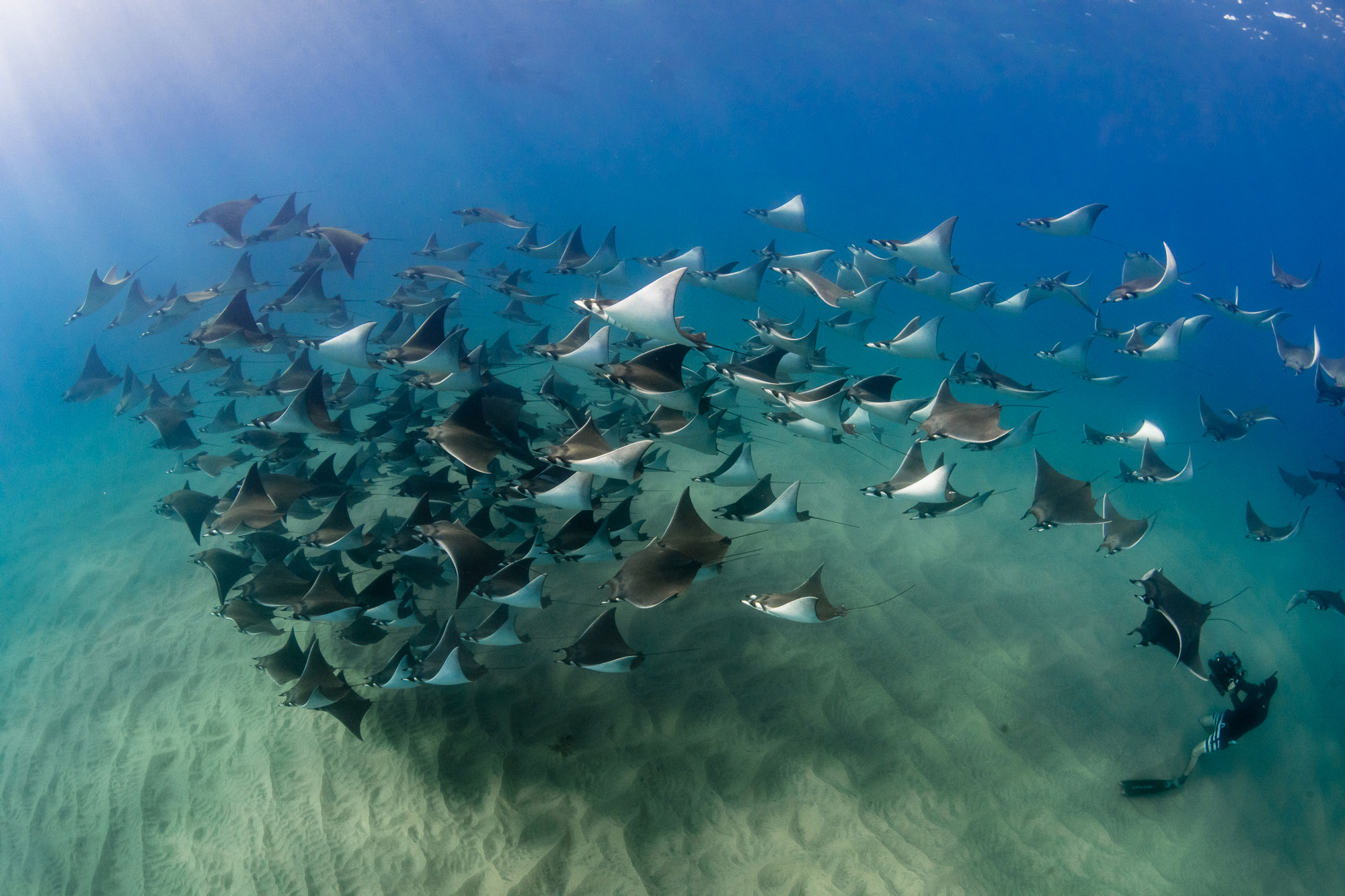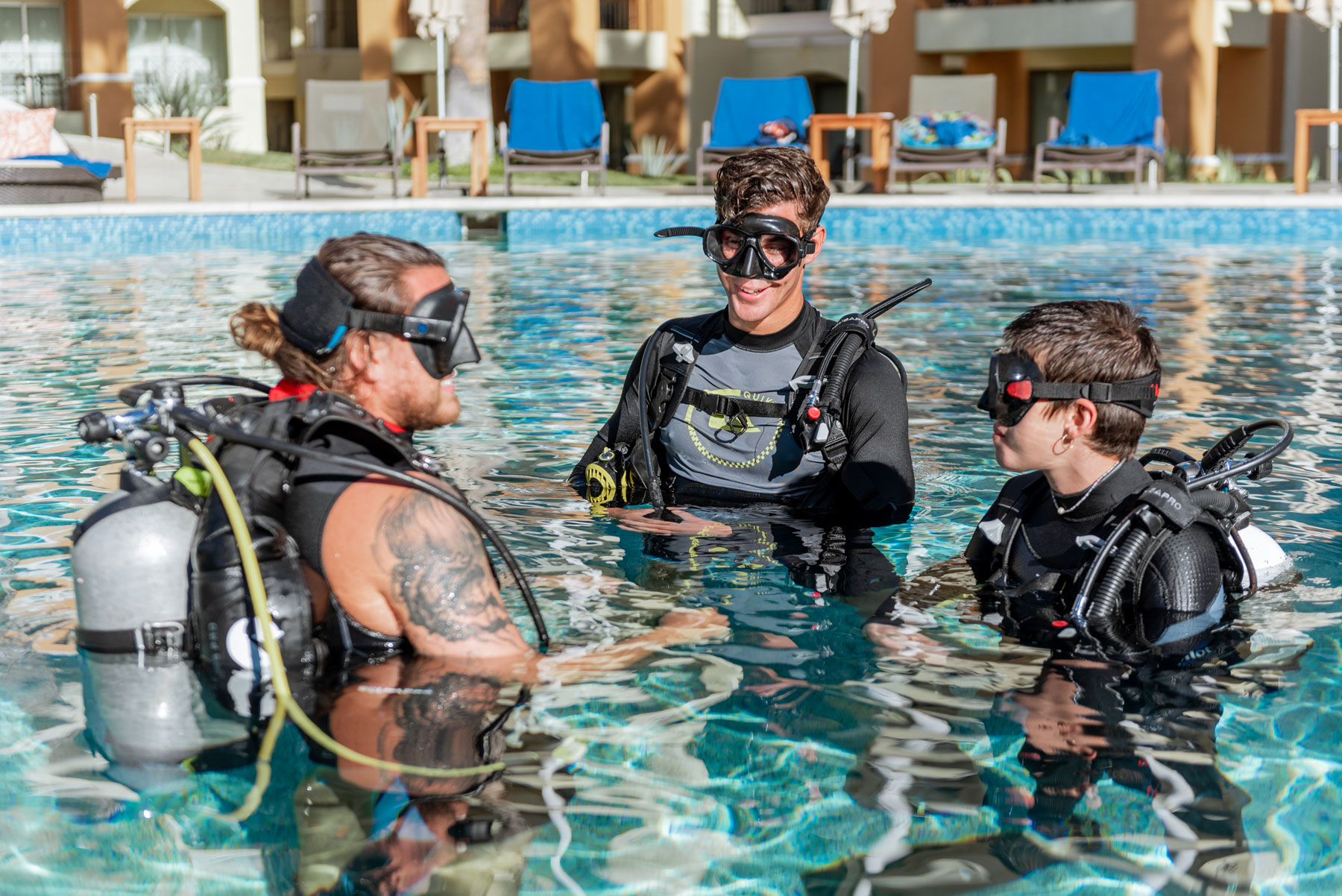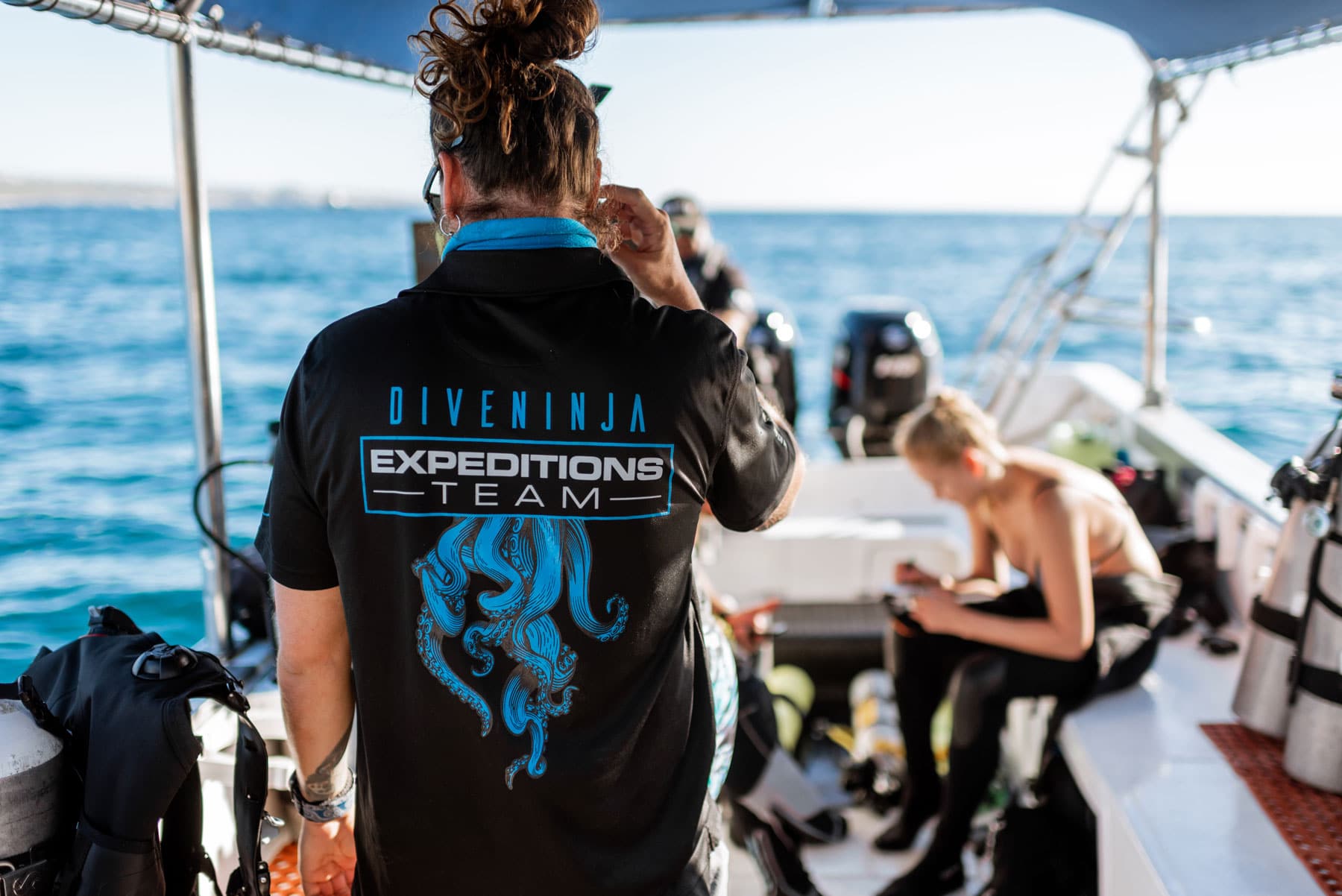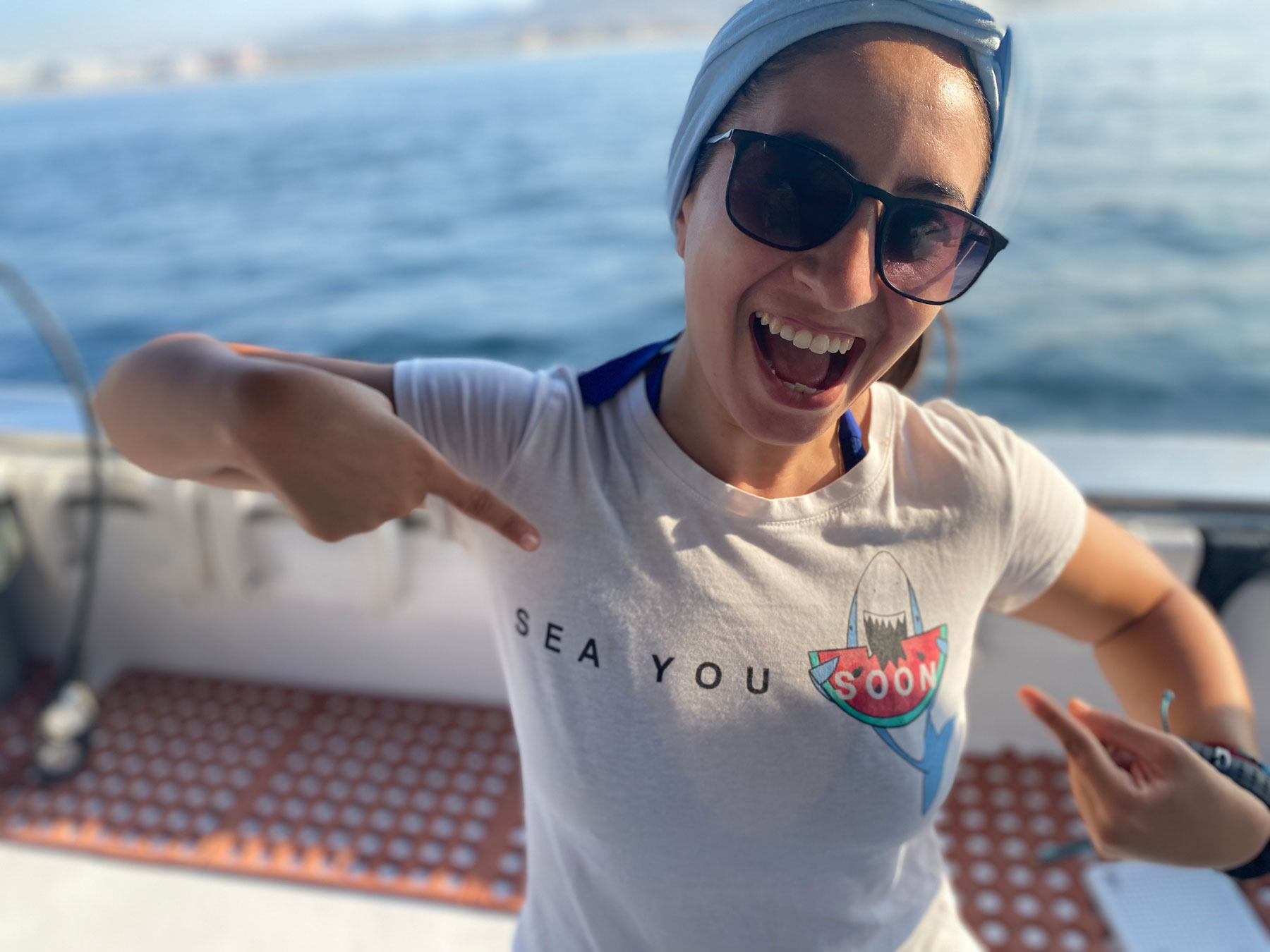Marine Life & Conservation
Dive Ninjas opens conservation-focused PADI IDC Program in Los Cabos

Dive Ninja Expeditions has announced the opening of their new PADI 5 Star IDC Dive Center in Los Cabos, Mexico with conservation-oriented dive professional programs. As leaders in the industry, Dive Ninjas is committed to their mission in promoting sustainable marine tourism by expanding their training programs to instructor level courses.
“Our Divemaster, Instructor, and MSDT programs are unlike any other in the industry. They focus on creating highly trained, knowledgeable dive professionals that can drive change in the industry and work to help protect our oceans no matter where in the world their career in diving may take them,” says conservationist and Dive Ninjas Founder Jay Clue.

Each Ninja Go Pro Program starts with a standard PADI course at its core. From there they have curated specialized workshops built-in to the program at no extra cost to help students develop a more specialized skill set not only for their career but to equip them with tools to help create a bigger impact in the world.
Ninja Go Pro Programs & Details:
- PADI Divemaster Course – This mentorship program includes 14 additional workshops such as designing eco tours, working in remote areas, etc.
- PADI Instructor Development Course – This 2 week program has a built-in IDC preparation course, Dive Ninja’s exclusive PADI Whale Defender Specialty Instructor course, and over 6 specialized workshops on how to work responsibly with sharks & rays, sustainable dive operations, and more.
- PADI Master Scuba Diver Trainer (MSDT) Course – This 4-day program teaches 5 different specialty instructor courses specially curated by Dive Ninjas – including their new Apex Predator Diver course coming out this spring. It can be packaged with IDC or as a standalone course for those instructors looking to further their career in diving.

Dive Ninjas will also be offering the PADI IDC Staff Instructor (IDSCI) course as well as PADI Technical Diving Instructor and Freediving courses.
Former PADI Regional Manager and Instructor Examiner Anders Heegaard will be leading the program. Anders is a PADI Platinum Course Director with over 12 years experience teaching IDCs and creating some of the top IDC Programs in North America. “As the next voices of the ocean, we want each student to succeed in our programs but more importantly, inspire them to get involved in conservation. Our team will be there to support every step of the way, providing relevant knowledge and experience that will benefit them later on.”

The Ninja Go Pro programs have been curated out of decades of combined experience working in diving and ecotourism, but also from a passion for teaching and ocean conservation. “We want to drive change in the industry by helping to create a new generation of PADI dive professionals. Divemasters and Instructors that will not only be some of the most sought after in the industry but who will go on to inspire divers and non-divers alike to fall in love with our planet’s beautiful waterways and take action to help protect them and all of the incredible creatures that call them home. This is the soul and ethos of the Dive Ninja professional training program,” shared Clue.

This announcement comes on the heels of the opening of Dive Ninja’s second location at Casa Dorada, a renowned 5-star hotel in the heart of Cabo San Lucas, Mexico in December 2020.
More information about the PADI Divemaster, IDC, and go pro programs offered by Dive Ninjas as well as their program schedule and pricing can be found at www.idcloscabos.com.
Photos by: Jay Clue
Marine Life & Conservation
GROUNDTRUTH collaborates with PADI on pioneering submersible collection

GROUNDTRUTH, a story-led material innovation company that is fast forging a reputation for its next generation travel gear, is thrilled to announce its collaboration with the world’s largest diving association – PADI – on a range of pioneering submersible bags.
Entitled UNDA, Latin for wave, the collaborative range sets a new standard in sustainable design, with the GROUNDTRUTH team transforming the standard drybag into a future-focused travel companion, representing the two partners’ shared philosophy of ocean and environmental protection.
The 100% recycled bag range’s proprietary material is made from plastic waste including ghost fishing nets, post-consumer Nylon and plastic bottles. It is used alongside GROUNDTRUTH’S own patent-pending GT-OCO-CO2® hardware range, made from recycled plastic and captured CO2 emissions.
With a presence via 6,600 dive centres and resorts in 184 countries and territories throughout the world, PADI has amassed a hugely engaged community of 30 million+ divers to date. This collection creates a platform to highlight the shocking / mind blowing impact of plastics affecting our blue planet while actively contributing to its removal – empowering people from around the globe to take meaningful action to protect what they love.
“We are incredibly excited to partner with PADI on this project which will be launched via PADI’s global diving network and via our own channels,” said Georgia Scott, Co-founder and CEO of GROUNDTRUTH. “Ghost fishing nets account for over 50% of all plastic waste in our oceans, causing irreversible damage to global marine ecosystems. By combining our expertise in innovative design with PADI’s dedication to Ocean conservation, we aim to make a significant positive impact through the repurposing of these harmful plastics. GROUNDTRUTH was created with the value that all consumer products should contribute to a safer planet.”
“We are proud to collaborate with GROUNDTRUTH, as this partnership exemplifies our shared mission to mobilize the global community of Torchbearers who actively explore and protect our ocean,” said Lisa Nicklin, Vice President of Growth and Marketing for PADI Worldwide “Together, we’ve revolutionized the way that divers can carry around their essentials while elevating their commitment to protecting the place they love. It’s truly a product line designed by divers, for divers.
The UNDA range will be available for pre-order through www.groundtruth.global from the 3rd of February 2025 with PADI members being given the first opportunity to buy via their channels. Join us in this pioneering initiative to explore, protect, and preserve our oceans for future generations.
For more information about the GROUNDTRUTH x PADI collaboration, click here.
About GROUNDTRUTH®
GROUNDTRUTH sparks a new generation of travel gear that enables and accelerates positive change, making a transformative impact to industries, processes and people. As a green technology business and lifestyle brand, at the heart of GROUNDTRUTH is the exploration and development of new materials crafted from the world’s pollution and plastic waste. Their patent-pending GT-OCO-CO2® hardware range, created from recycled plastic and captured CO2 Emissions, is a world first.
Utilising their origins as investigative documentary filmmakers, sisters and founders Georgia, Sophia and Nina Scott, have hand-built GROUNDTRUTH’s unique Bluesign® certified supply chain ecosystem with partners who share the brand’s ethos for people and our planet. Their mission and products are created to support and empower individuals who are making a difference, both in their communities and around the world.
About PADI®
PADI® (Professional Association of Diving Instructors®) is the largest purpose-driven diving organization with a global network of 6,600 dive centers and resorts, 128,000 professional members and more than 29 million certified divers to date. Committed to our blue planet, PADI makes the wonder of the underwater world accessible to all, empowering people around the world to experience, explore and take meaningful action, as Ocean TorchbearersTM, to protect the world beneath the surface. For over 50 years, PADI is undeniably The Way the World Learns to Dive®, setting the standard for the highest quality dive training, underwater safety and conservation initiatives while evolving the sport of diving into a passionate lifestyle. For divers by divers, PADI is obsessed with transforming lives and, with its global foundation, PADI AWARETM, creating positive ocean change. Seek Adventure. Save the Ocean.SM
Marine Life & Conservation
Go Diving Show 2025 UK Stage Speaker: Lloyd Rees-Jones

Sharks dwell off the UK coastline, but did you know there is one that glows in the dark? Join Lloyd Rees-Jones at this year’s GO Diving Show in March when he takes to the UK Stage to showcase a very different side of our marine life when viewed in a different light (no pun intended!).
Lloyd Rees-Jones is a HSE Part 4 Media Diver, PADI Master Scuba Diver Trainer, underwater videographer and seasoned volunteer with Neptunes Army of Rubbish Cleaners (NARC). For almost 20 years he has been completely captivated by three shore diving locations in Pembrokeshire, West Wales, and every year he discovers something new that fills him with excitement for the season ahead and keeps him going back year after year.
Ultraviolet night diving in Pembrokeshire
Lloyd’s talk on the UK Stage will be about marine fluorescence and the nocturnal activities of our favourite coastal species, and will give a glimpse on how ultraviolet night diving has the potential to rekindle our passion for night diving – and also the hidden benefits it can bring to our UK diving adventures.
Go Diving Show 2025 takes place at the NAEC Stoneleigh Park, Coventry, on the 1st -2nd March.
-

 Gear Reviews2 months ago
Gear Reviews2 months agoGear Review: SurfEars 4
-

 Marine Life & Conservation2 months ago
Marine Life & Conservation2 months agoPaul Watson Released as Denmark Blocks Japan’s Extradition Bid
-

 Blogs3 months ago
Blogs3 months agoExperience Malta and Gozo in 2025: A Paradise for Divers and Culture Lovers
-

 News1 week ago
News1 week agoHumpback Mother and Calf Win Underwater Photographer of the Year 2025
-

 Blogs3 months ago
Blogs3 months agoJeff Goodman Launches Underwater Moviemaker Course with NovoScuba
-

 News3 months ago
News3 months agoDive into Adventure: Limited Space Available for January Socorro Liveaboard Trip with Oyster Diving
-

 News2 months ago
News2 months ago2-for-1 tickets now available for GO Diving Show
-

 News2 weeks ago
News2 weeks agoFilming 360 in The Bahamas















